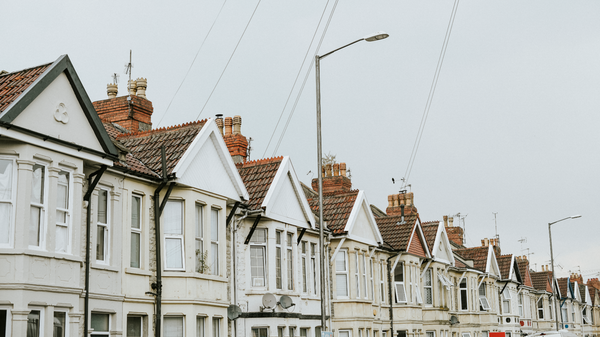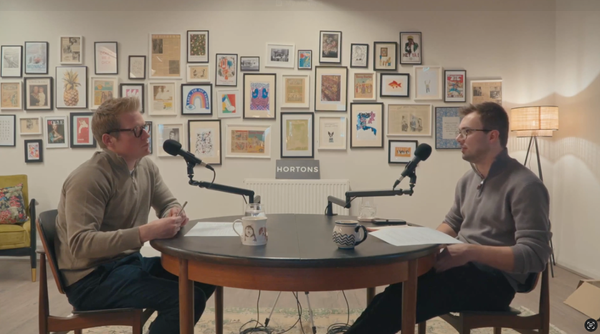If I was starting over, I'd do this:
In estate agency, door knocking isn’t everyone’s cup of tea, but it has consistently been my most reliable method for finding new listings.
It’s a skill that improves with practice—a craft you can refine over time. My process and script are now well-practiced, to the point where I’m confident that with a single afternoon's effort, I could almost guarantee securing a new listing. I know that's a bold claim, but I honestly believe it!
While my current role at Hortons is now operational, I still encourage door knocking during our new agent onboarding process. It's something I encourage everyone to embrace.
Here are my top tips for effective door knocking:
Stop talking
When a homeowner answers the door, aim to get them talking as soon as possible. It’s easy to fall into the trap of introducing yourself, explaining why you are knocking on their door, and detailing how you can help. Don’t do it! It might feel awkward, but keep your opening pitch to 15-20 seconds maximum. I've found an opening line such as ‘I’m Adam, I’m from Hortons Estate Agents, and I noticed your for sale board. I thought I’d introduce myself and see how it’s all going - have you had many viewings?’ works best. You could feel awkward because you’re interrupting their day. You might feel that you should be justifying exactly why, but by getting them talking as soon as possible, you will shift the focus onto them. The vast majority of people you will meet will be polite, and they’ll answer your question. You’ll soon find out if it’s going well or not. If not, remember to start asking more questions, allowing the homeowner to reveal as much information as possible before offering them a solution or asking for a valuation - you need to think of this initial conversation as a fact-finding exercise.
Provide a low resistance offer
Once you’ve uncovered how things are going for the seller, decide on your ‘plan of attack’. If their sale is going well, offer to register them as a buyer and help them with their search. If it’s not going so well, offer them a low-resistance solution that addresses their greatest pain point. For most people, it’ll simply be a lack of interest that is frustrating them. An example of a low-resistance offer could be to review their marketing and come back to them with some advice on why you think it might not be generating the interest they hoped for. To clarify, by 'low-resistance,' I mean that you’re not asking for any of their time or money - you’re not asking to come back and value their house yet or commit to anything.
A contact number is essential
Don’t be afraid to ask for the seller's number. While you don’t want to be overly pushy, as that could easily turn them off, simply have the confidence to go straight in and ask for it. Avoid offering your card and suggesting they give you a call. It's essential to stay in control of when you’re going to reach out to them, and the best way to do that is by having their number. If they ask for your card, find a way to flip it - offer to go beyond that. For example, you could ask for their number and say that you'll WhatsApp them all your details and social media profiles. Essentially, help them see value in you having their number.
Make your follow-up remarkable
When following up on the outcome of your low-resistance offer, you really need to ensure you're providing them with incredible value. A good agent isn’t going to try to deceive them or simply attempt to pressure them into listing. The more effort you put into crafting a remarketing or relaunch proposal, the more detailed and comprehensive it is, the more likely it is to be taken seriously by the seller.
Quantity matters
Don’t go out to door knock with a list of just 5 addresses; aim to visit 20-30 at a time. However, set yourself a realistic target and benchmark for what you determine as a successful day. For instance, if you go out each day with the sole aim of obtaining contact details from 2 sellers who are on the market, that should be seen as a real success. The compounding effect of doing this consistently will be amazing - it will provide you with a huge list of high-quality contacts that you can proactively nurture.
Find efficiencies
Creating a list of addresses you want to visit, then utilise a route planner to determine the most efficient route. This will help avoid backtracking and wasting time and petrol. The AA Route planner is free and works really well. While compiling your list of addresses, you may not always have access to all the house numbers, but the route planner still works with just the postcode, which can easily be found by searching the street address on Google. Once you know the house when you visit the property, remember to add the number to your database.
The age of a listing doesn’t matter
Don’t worry about how long a property has been on the market - it’s even worth door knocking the day it becomes available. For example, if a property has just been listed in your area and you don’t know the seller or have their details, that's even more reason to introduce yourself. Offer to help with their search and get them registered as a buyer. The value in this lies in obtaining another seller's contact details that you can add to your prospecting database to then proactively nurture. If the property doesn't sell, the aim has to be to make sure you're the agent they turn to next.
Two Common Myths:
Door knocking doesn’t work in my area:
This is one of the most common misconceptions, but it simply isn’t true. If you haven’t had success with door knocking, it's not the homeowners' fault; it's likely because you’ve got the wrong approach. We've seen door knocking be highly effective in all areas, from inner cities and exclusive suburbs to premium villages, and everything in between.
Sellers in my area wouldn’t like people door knocking:
Similarly to the previous myth, this belief is based on the approach. Remember, when someone is selling a house, it's probably the most significant thing happening in their life at that particular time. You're not showing up to sell double glazing; you're there to have a conversation about this significant and highly relevant event in their life.
If I was going back in time, or starting over, I think door knocking would be the thing I’d focus as much of my time on as possible. However, as I’ve said above, it’s clearly not for everyone. To be successful at it, you need to fully embrace it.
Whatever you’re doing with your prospecting, the most important thing is just to go ‘all in’. Be relentless and do more of it, more consistently than your competition
If you’re on the hunt for new listings, and you’ve not tried door knocking yet, or you’ve been nervous to do it, this is your sign that you should give it a go. Let me know how you get on!





